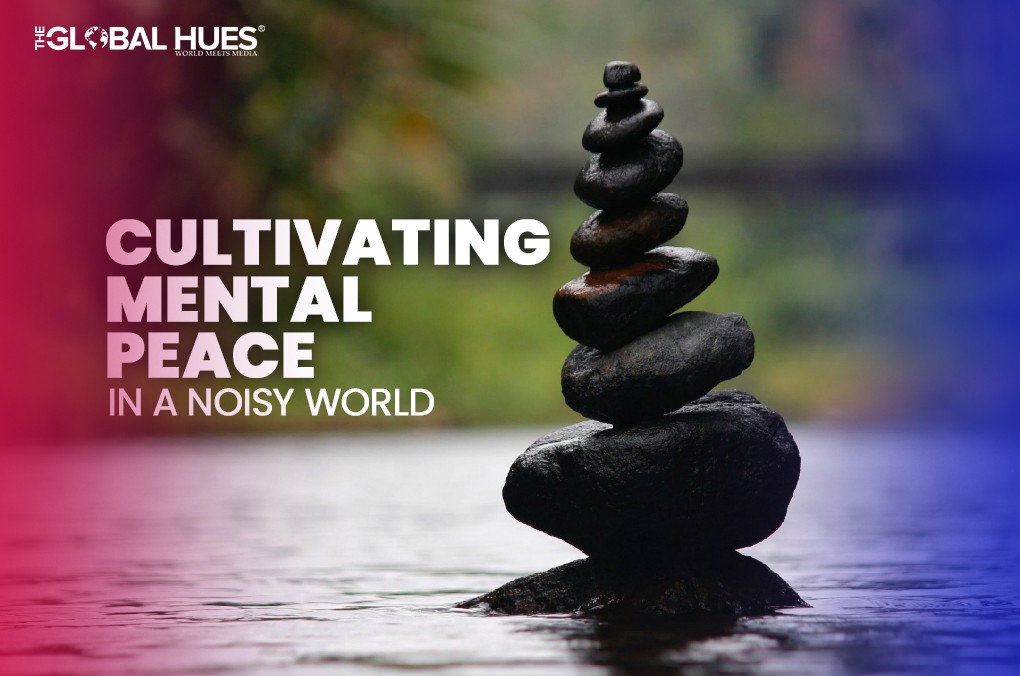(The article is developed in partnership with BetterHelp)
Today’s world is busy and loud. Achieving peace of mind can feel hard. This is especially true in a world of constant communication. As technology continues to advance, finding moments of tranquility becomes ever more challenging.
If you happen to be someone who identifies as an introvert or who has been diagnosed with social anxiety, you may feel more pronounced pressure.
However, by understanding the factors that contribute to communication and information overload and exploring strategies to cultivate inner peace, we can navigate life with greater ease and mindfulness.
The Quest for Mental Peace
Mental peace is not just the lack of stress or anxiety. It’s a state of inner calm. It helps us handle life’s challenges with resilience and clarity. Yet, in a world where constant connectivity and information overload are the norm, finding moments of stillness can seem like a distant dream.
Whether you spend a lot of time online or have a busy social calendar, communication can go from pleasurable to obligatory. Some may even feel a compulsive urge to stay in contact with others at all times.
Understanding the impact of our digital environment on mental well-being is crucial in our quest for inner peace. It’s not only the internet. It’s the way being ever-present has become normalized.
Gone are the times when you could not answer the phone because you weren’t home. Now, our phones are with us all the time. It isn’t just calls either. It’s texts, emails, social media, and even the social pressure to photograph and broadcast every moment of our day that can stress us out.
We carry all of these things around with us every day, rarely feeling like we have a moment of true peace.
Navigating Digital Distractions
The rise of smartphones, social media, and constant connectivity has transformed how we engage with the world around us. These technologies offer great access to information and communication. But, they also pose big challenges to our mental health.
The constant barrage of notifications, the pressure to stay connected, and the endless scroll of social media feeds can fuel feelings of anxiety, overwhelm, and dissatisfaction.
How can we establish boundaries around communication and technology? We may choose to set some guidelines with ourselves and others.
Finding Solitude in a Connected World
In a society that values productivity and connectivity, carving out moments of solitude and reflection can be difficult. However, creating that space can help some maintain mental well-being. Finding time to disconnect allows us to recharge and reconnect with ourselves on a deeper level.
There are several tools and tactics you can consider while creating a more peaceful life.
Mindfulness
Mindfulness encourages us to stay in the moment and be observant. Living mindfully has many potential benefits. The most important one for communication overload may be the way it slows us down.
As we focus on what is happening around us and appreciate, observe, and contemplate, we may find that our thoughts and even the urge to rush through life abate.
Meditation
There are many ways and reasons to practice meditation. Some are spiritual but there are entirely secular benefits too.
Committing to setting aside 15 minutes a day to be alone can help some people recharge. It isn’t just about the meditation- it’s about prioritizing your peace. Making yourself a priority can be its own act of self-care.
Additionally, your thoughts may quiet as you sit quietly and focus on your breath, a flickering candle, or a sound in the room.
Structured Breaks/Being Unavailable
You might decide to make a few periods of the day ‘you time’ and commit to stopping communication. This could look like taking a walk after lunch and leaving your phone behind. It could be enjoying a television show or movie without feeling the need to check your devices.
Perhaps you like preparing and eating an evening meal and decide to go ‘no tech’ while you cook and enjoy.
Whatever you choose to do during your time, the point is to allow it to be all about you.
You may tell friends and family that you won’t answer calls and texts after a certain time. Or, tell everyone that a certain day of the week is off-limits. Informing others of our expectations can help them understand and support us.
Work/Life Balance
It can be especially tempting to let work bleed into our personal time. We may find ourselves checking business emails and texts. We may even brainstorm work strategies in our free time.
The advent of ‘’hustle culture’’ may have increased the pressure to be constantly productive.
It can feel like you’re getting a jump on your day but at what cost? Having a healthy work-life balance can make a positive contribution to our mental health.
Consider establishing a stronger boundary about work. If necessary, talk to your boss, manager, or supervisor to ask for support.
The Role of Speech Anxiety
One common obstacle to inner peace amid a noisy world is speech anxiety. Speech anxiety is a form of social anxiety characterized by fear or apprehension about speaking in front of others.
While speech anxiety may manifest differently in individuals, it can significantly impact one’s quality of life.
Fortunately, there are evidence-based strategies, such as cognitive-behavioral therapy (CBT) and exposure therapy, that can help individuals overcome speech anxiety and regain confidence in their communication skills.
Learn more about speech anxiety here: www.betterhelp.com/advice/anxiety/what-is-speech-anxiety-and-how-do-i-overcome-it/.
Cultural Variations & Social Expectations
It can also be interesting to consider the cultural context when exploring the challenges of social overwhelm. Cultures vary widely in their social norms, expectations, and attitudes toward social interaction. This can significantly impact individuals’ experiences of anxiety in social settings.
This may be one factor in why some places in the world seem more peaceful. However, both the physical and digital worlds can differ among different populations. Culture can spill over into online communication.
For example, countries like Sweden highly value autonomy and personal space. As a result, social interactions are sometimes reserved. These values can manifest as reduced small talk and less casual social interactions among strangers. This paradigm conserves individuals’ boundaries and autonomy.
The emphasis on personal space and privacy in certain cultures may alleviate some of the pressures associated with social anxiety. People in these places may feel less compelled to socialize or talk to strangers.
Conversely, in cultures where social connections and communal bonds are highly valued, social interactions tend to be more effusive, expressive, and frequent. Americans, for instance, are generally regarded as friendly, engaging in a lot of social small talk.
While these cultural norms foster a sense of community and camaraderie, they can also exacerbate feelings of anxiety and discomfort for individuals with social anxiety. Those individuals may find the constant social engagement overwhelming and exhausting.
This can be one reason why people who move to different regions, countries, and cultures can find the transition stressful.
By recognizing and understanding the cultural variations in social expectations and norms, people with social anxiety may see how different cultures can affect their anxiety. By learning new perspectives, they may also develop ways to navigate social situations better.
Balancing Social Pressure And Social Pleasure
The world is full of digital distractions and external pressures about communication. Cultivating mental peace is an ongoing journey. It needs intention, practice, and self-compassion. For some, a little professional help with social anxiety or overwhelm can also help.
When we understand the impact of our digital environment on mental well-being, we can be more deliberate. We can explore strategies to create boundaries. Then, we can start enjoying more peace.




